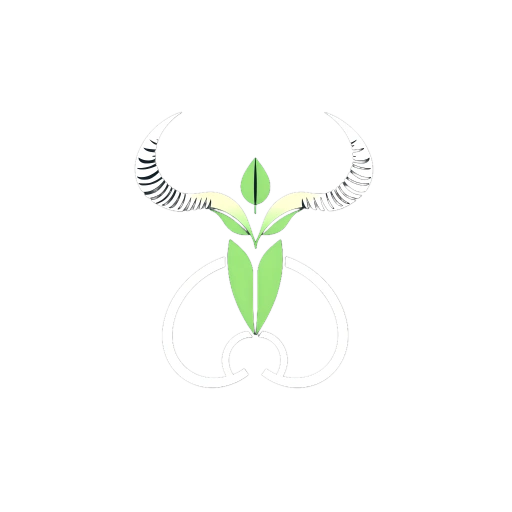The Evolving Meaning of “Cucked”
The term “cucked” or “cuck” has undergone a significant transformation over time, shifting from a historical reference to cuckoldry in relationships to a broader socio-political and cultural insult. Today, “cucked” is used in multiple contexts, some related to intimate relationships and others as a derogatory term outside of sexual dynamics.
This article explores the origins of “cucked,” its relationship with cuckoldry and cuckolding, and its broader implications in both relationship dynamics and modern discourse.
Origins: From Cuckold to “Cuck”
The term “cuckold” dates back to medieval English and originates from the Old French word cucuault, derived from the cuckoo bird—known for laying its eggs in another bird’s nest. The metaphor evolved to describe a man whose wife engaged in extramarital relations, often without his consent.
Cuckoldry in Historical and Literary Contexts
- Medieval and Renaissance Literature: Cuckoldry was a common theme in European literature, appearing in Chaucer’s The Canterbury Tales and Shakespeare’s plays, where being a cuckold was associated with humiliation and social disgrace.
- Psychological and Evolutionary Aspects: Evolutionary psychology discusses cuckoldry in terms of paternity uncertainty, with theories suggesting that male jealousy and mate-guarding behaviors evolved in response to reproductive risks.
By the 20th century, cuckoldry extended beyond involuntary infidelity and became associated with consensual non-monogamous dynamics, particularly in the realm of fetish and alternative relationship structures.
The Meaning of “Cucked” in Modern Relationship Contexts
Cuckolding as a Consensual Relationship Dynamic
In contemporary sexuality and relationship psychology, cuckolding (sometimes misspelled as ‘cuckholding’) refers to a consensual dynamic where one partner (typically the husband or male partner) derives psychological or emotional satisfaction from their partner engaging in sexual activity with another individual. This dynamic can be categorized into different forms:
- Erotic Cuckolding: Where arousal is derived from the partner’s experiences.
- Psychological and Emotional Dimensions: Cuckolding can involve themes of submission, trust, and compersion (deriving joy from a partner’s pleasure).
- Therapeutic and Relationship Perspectives: Some couples explore cuckolding to enhance communication, trust, and intimacy.
Dr. Sitara, a clinical researcher specializing in cuckold therapy, highlights that in therapeutic contexts, cuckold dynamics can be structured to foster trust and deepen intimacy when approached with mutual consent and emotional safety.
Non-Consensual vs. Consensual Cuckoldry
- Traditional Definition (Non-Consensual Cuckoldry): Historically, a cuckold was a man unknowingly or unwillingly betrayed by his partner.
- Modern Consensual Exploration: In the world of alternative relationships, being “cucked” does not necessarily mean being humiliated but rather participating in a negotiated, fulfilling relationship structure.
The Meaning of “Cucked” in Non-Relationship Contexts
In recent years, “cucked” has extended beyond relationship dynamics into cultural and political discourse, often used as an insult in ideological debates.
“Cuck” as a Political and Cultural Slur
- Far-Right and Internet Subcultures: In political and internet slang, “cuck” or “cucked” has been weaponized as a derogatory term, implying weakness, submissiveness, or being dominated by opposing ideological forces.
- Hyper-Masculinity and Social Criticism: In certain circles, calling someone a “cuck” suggests that they lack control or power, particularly in debates around masculinity, nationalism, and cultural identity.
Sociological and Psychological Interpretations
From a psychological standpoint, the use of “cucked” as an insult taps into deep-seated fears of powerlessness, whether in personal relationships or socio-political spheres. The negative connotations align with traditional views on dominance and submission, where being “cucked” implies a loss of control or agency.
The Broader Implications of “Cucked”
Relationship Psychology and Sexual Exploration
For those engaging in consensual cuckoldry, being “cucked” can be an empowering and fulfilling experience, challenging traditional notions of monogamy and possession. Understanding and navigating this dynamic requires:
- Effective Communication: Couples must establish clear boundaries and emotional safety.
- Consent and Emotional Intelligence: Navigating feelings of jealousy and trust is crucial for success.
- Therapeutic Guidance: Some individuals and couples explore cuckold therapy as a means to enhance their emotional connection.
The Weaponization of “Cucked” in Society
The negative use of “cucked” as an insult reflects broader cultural anxieties around masculinity, power, and submission. This aligns with:
- Cultural Shifts in Gender and Power: As traditional gender roles evolve, terms like “cucked” highlight resistance to changing dynamics.
- Masculinity in Crisis Narratives: The use of the term often appears in discussions about male identity in modern society.
Reclaiming the Term
For those involved in consensual cuckold dynamics, the terms cuck, cucked, and cuckold do not carry the humiliation implied by its historical and derogatory usage. Instead, it represents a unique relationship dynamic based on trust, honesty, and emotional connection.
Cucked in All Its Dimensions
“The term “cucked” has evolved from its historical roots in cuckoldry to encompass a wide range of meanings, from consensual relationship dynamics to socio-political insult. While its usage varies depending on context, it ultimately reflects deeper themes of power, trust, and identity—both in personal relationships and society at large.
For those seeking to understand cuckoldry from a professional and therapeutic standpoint, it’s essential to separate consensual practices from cultural misconceptions. Whether explored as an intimate dynamic or examined as a socio-political term, the meaning of “cucked” continues to evolve, shaped by history, psychology, and modern discourse.



